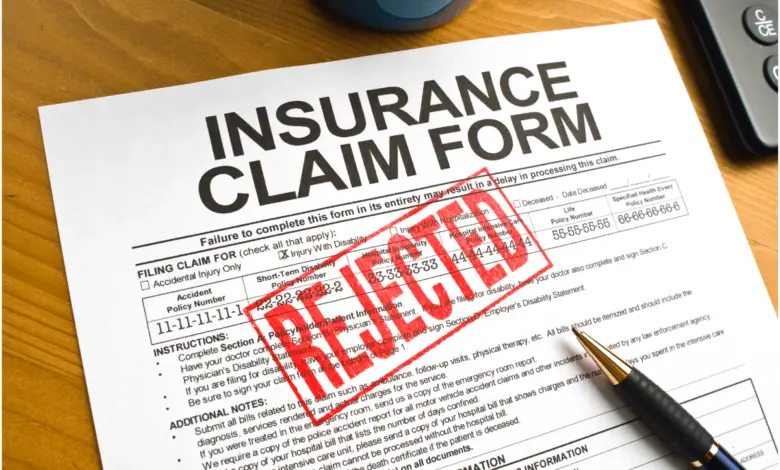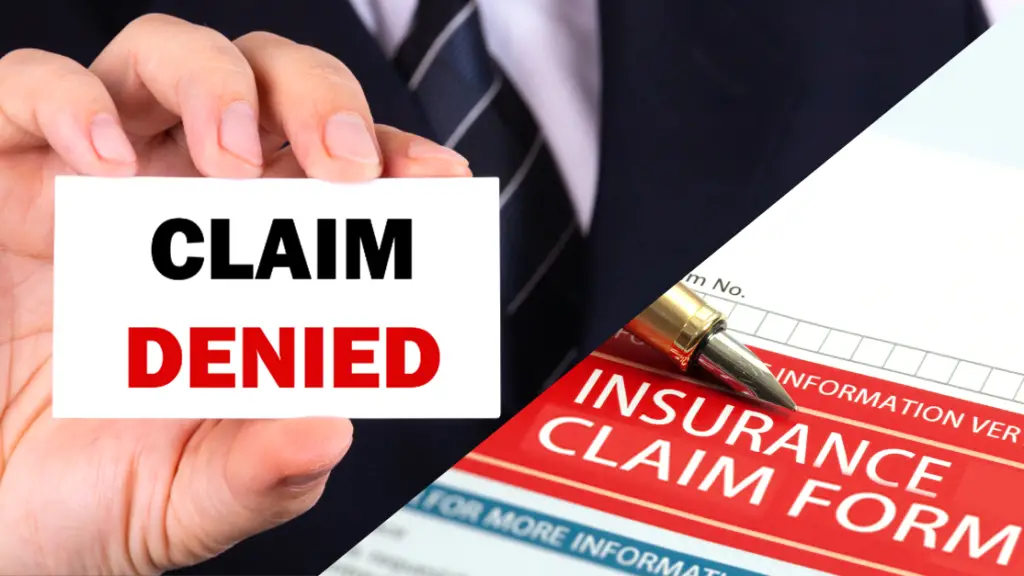Maximizing Insurance Claim Approval: Tips to Prevent Denials
Claim Success 101: Tips to Maximize Insurance Approval

Claim Approval: Discover effective strategies to maximize your insurance claim approval and prevent denials. Learn about common reasons for claim denials and essential tips for a hassle-free claims process. Get the protection you deserve

In today’s world, insurance plays a pivotal role in safeguarding individuals and businesses against unforeseen financial risks. Insurance policies, ranging from health and auto to property and life, offer a sense of security. However, the lingering question on many policyholders’ minds is, “Can insurance deny a claim?” Understanding the ins and outs of insurance claim denials is crucial for ensuring that your claims are accepted when you need them most.
The Claim Denial Conundrum
The process of filing an insurance claim may seem straightforward, but it’s essential to acknowledge that insurance companies are profit-driven entities. This means they have a vested interest in minimizing payouts. Therefore, claim denial isn’t an uncommon occurrence. To overcome this, you need to be well-prepared and informed.
Reasons Behind Claim Denials
Insurance claims can be denied for various reasons, and understanding these reasons is the first step to preventing denial:
Policy Exclusions
Insurance policies typically come with terms and conditions, which may include exclusions. If the cause of your claim falls under one of these exclusions, the insurance company may deny it. It’s vital to read your policy thoroughly to identify any potential exclusions.
Lack of Documentation
Insufficient or incorrect documentation is a prevalent cause of claim denials. Always ensure that you provide comprehensive documentation and information when filing a claim. This includes police reports, medical records, and receipts, depending on the type of claim.
Missed Premium Payments
If you fail to pay your insurance premiums regularly, your policy may lapse. In such cases, the insurance company will deny your claim. Timely premium payments are crucial to keeping your coverage intact.
Pre-Existing Conditions
Health insurance claims can be denied if the condition you’re claiming for is considered pre-existing. It’s essential to understand the terms of your health insurance policy regarding pre-existing conditions.
Misrepresentation
If you provide incorrect information or withhold important details when applying for insurance, your claim can be denied. Be truthful and accurate when completing your application to avoid this issue.
Preventing Claim Denials
While claim denials can be frustrating, you can take proactive steps to minimize the risk of your claims being rejected. Here are some tips to help you prevent insurance claim denials:
Review Your Policy Thoroughly
Before filing a claim, review your insurance policy to understand its terms, conditions, and exclusions. Knowing what is covered and what is not will help you avoid claim denial due to policy exclusions.
Maintain Accurate Documentation
Keep records of all communication with your insurance company, including emails, letters, and phone call logs. When filing a claim, provide accurate and comprehensive documentation.
Pay Premiums On Time
Ensure that your premiums are paid on time to prevent policy lapses. Set up reminders or automatic payments to avoid any issues with premium payments.
Disclose Pre-Existing Conditions
If you have a pre-existing medical condition, be honest and disclose it when applying for health insurance. This will prevent future claim denials related to that condition.
Seek Legal Advice
If your claim is denied despite meeting all the requirements, consider seeking legal advice. An attorney experienced in insurance claims can help you navigate the appeals process.
Conclusion
While the question, “Can insurance deny a claim?” may loom over policyholders, being proactive and informed is the key to maximizing your chances of claim approval. Understanding the reasons for claim denials and taking preventive measures can significantly reduce the risk of facing denial. By following the tips mentioned in this article, you can navigate the complex world of insurance claims more confidently and secure the protection you need.
FAQs:
Why Do Insurance Companies Deny Claims?
Insurance companies deny claims for various reasons. Common factors include policy exclusions, insufficient documentation, missed premium payments, pre-existing conditions, and misrepresentation. Understanding these reasons is essential for preventing claim denials.
How Can I Prevent Claim Denials?
Preventing claim denials involves several key steps:
Review Your Policy:
Before filing a claim, thoroughly review your insurance policy to understand its terms, conditions, and exclusions. Knowing what is covered and what is not can help you avoid claim denial due to policy exclusions.
Maintain Accurate Documentation:
Keep records of all communication with your insurance company, including emails, letters, and phone call logs. When filing a claim, provide accurate and comprehensive documentation.
Pay Premiums On Time:
Ensure that your premiums are paid on time to prevent policy lapses. Set up reminders or automatic payments to avoid any issues with premium payments.
Disclose Pre-Existing Conditions:
If you have a pre-existing medical condition, be honest and disclose it when applying for health insurance. This will prevent future claim denials related to that condition.
Seek Legal Advice:
If your claim is denied despite meeting all the requirements, consider seeking legal advice. An attorney experienced in insurance claims can help you navigate the appeals process.
What Are Policy Exclusions?
Policy exclusions are specific conditions or situations that are not covered by your insurance policy. These exclusions can vary from one policy to another. It’s crucial to read your policy carefully to identify any potential exclusions and understand what is not covered.
How Can I Ensure My Documentation Is Sufficient?
To ensure your documentation is sufficient, follow these tips:
For auto insurance claims, provide a copy of the police report, photos of the accident, and repair estimates.
For health insurance claims, include medical records, bills, and any pre-authorization forms required by your insurer.
For property insurance claims, document damage with photographs, repair estimates, and any relevant receipts.
Always keep copies of all submitted documents for your records.
Can Insurance Companies Deny Claims Based on Pre-Existing Conditions?
Yes, insurance companies can deny claims based on pre-existing conditions, especially in health insurance. It’s essential to disclose any pre-existing conditions when applying for coverage. However, the rules and regulations surrounding pre-existing conditions may vary, so it’s important to understand your policy’s specific terms.
How Can I Appeal a Denied Claim?
If your insurance claim is denied, you have the option to appeal the decision. To do so:
Review the denial letter:
Understand the reason for the denial.
Contact your insurance company:
Request clarification on the denial and ask for guidance on the appeal process.
Provide additional information:
If necessary, gather more supporting documentation.
Follow the appeal process:
Each insurance company has its own appeal process, so make sure to adhere to their guidelines.
Seek legal advice:
If your appeal is unsuccessful, consider consulting an attorney experienced in insurance claims for further assistance



